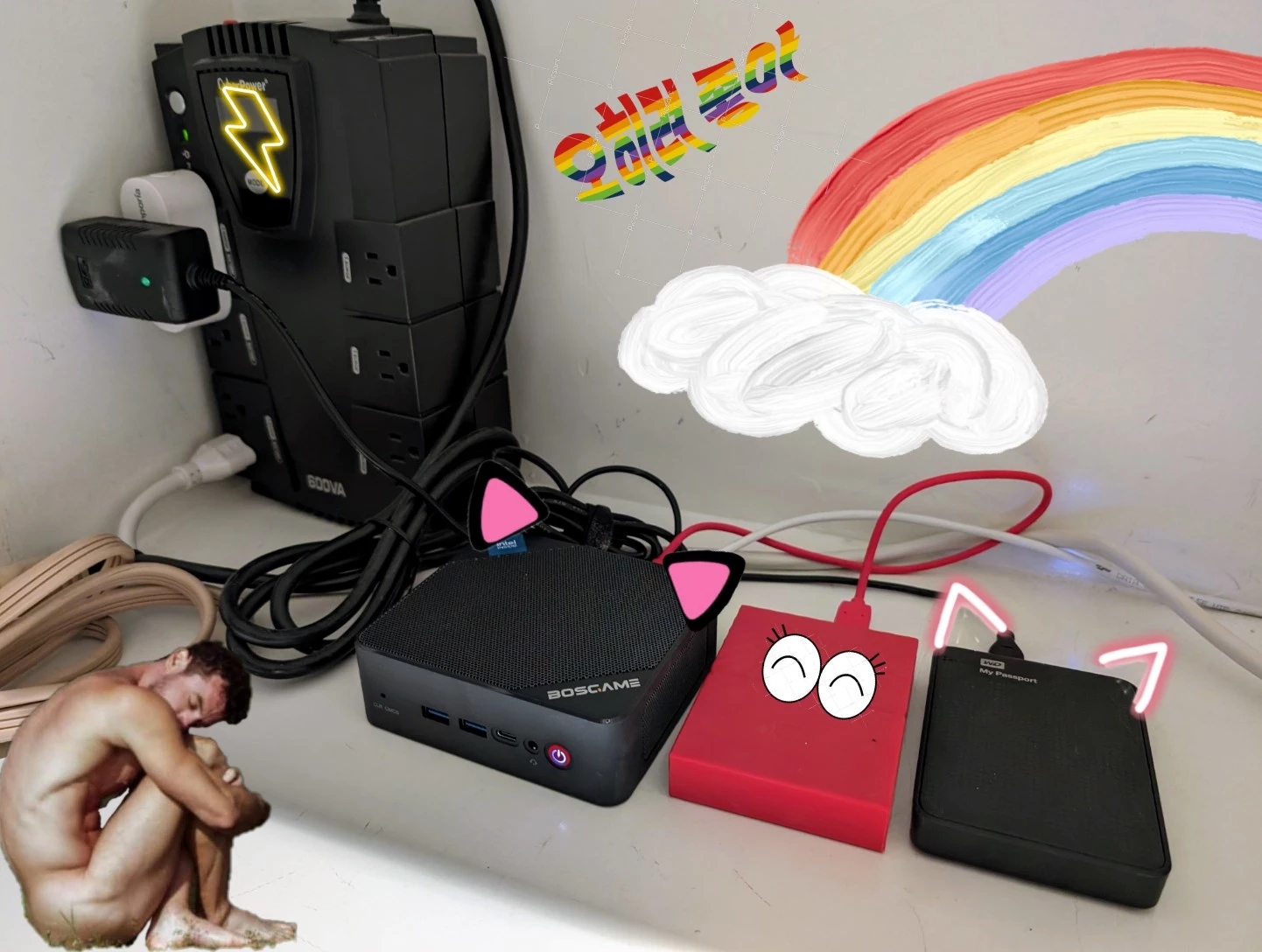|
Proxmox is good software for a home datacenter. It’s an OS you install on server hardware that lets you easily run multiple virtual machines and LXC containers. It also manages disk storage and has some more complex support for high availability in a cluster, distributed storage via Ceph, etc. But even with a single small server running a single VM Proxmox offers advantages.  I’ve had a Linux server in my home for 20+ years now. Every few years I have to rebuild it, often from the ashes of failed hardware, and it’s always a tedious manual process. Now my server is truly virtualized, a nice tidy KVM/QEMU virtual machine with a disk I can snapshot and back up. And migrate an exact copy to new hardware in minutes. Right now I’m mostly running my stuff in one big VM under Proxmox that I migrated from the old server. But I’m slowly moving services to separate VMs and LXC containers. So now my SMB server for Sonos lives in one container, and my Plex server in another, and my Unifi router manager in a third. All running isolated from each other. This feels tidier, more manageable. Proxmox does a lot of nice things for home-scale servers. It handles ZFS for filesystems, including snapshots and backups. It has a nice web GUI for managing things, even graphical consoles where needed. And I like how it supports both VMs and containers as a first class things. There’s other ways to manage guest systems, like Docker (containers only) or VMware ESXi (proprietary, VMs only). Proxmox feels the right scale for me. I’ve spent about a month tinkering with it and like the software quite a bit. It’s usable, well documented, and seems well designed. |
||
